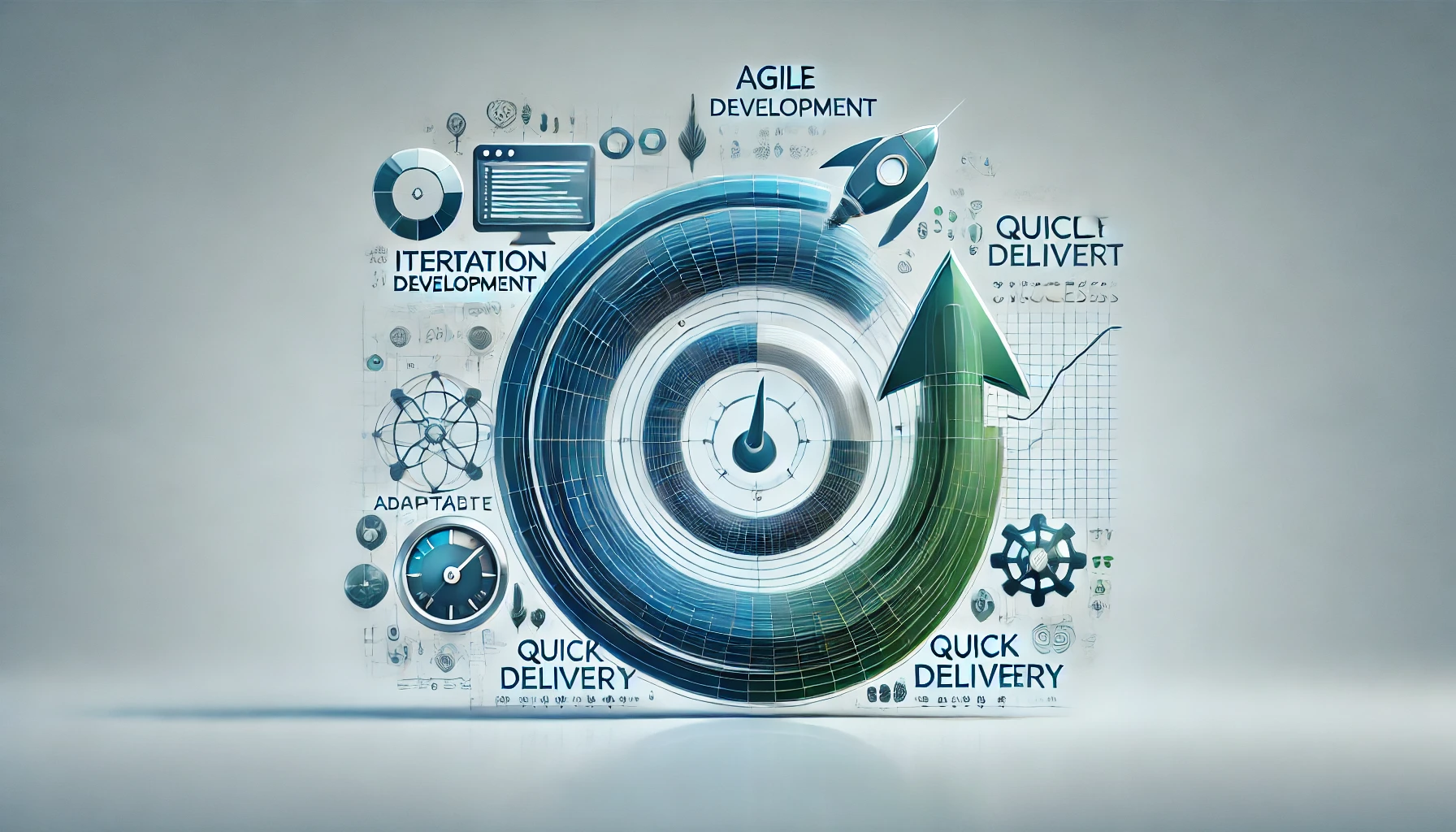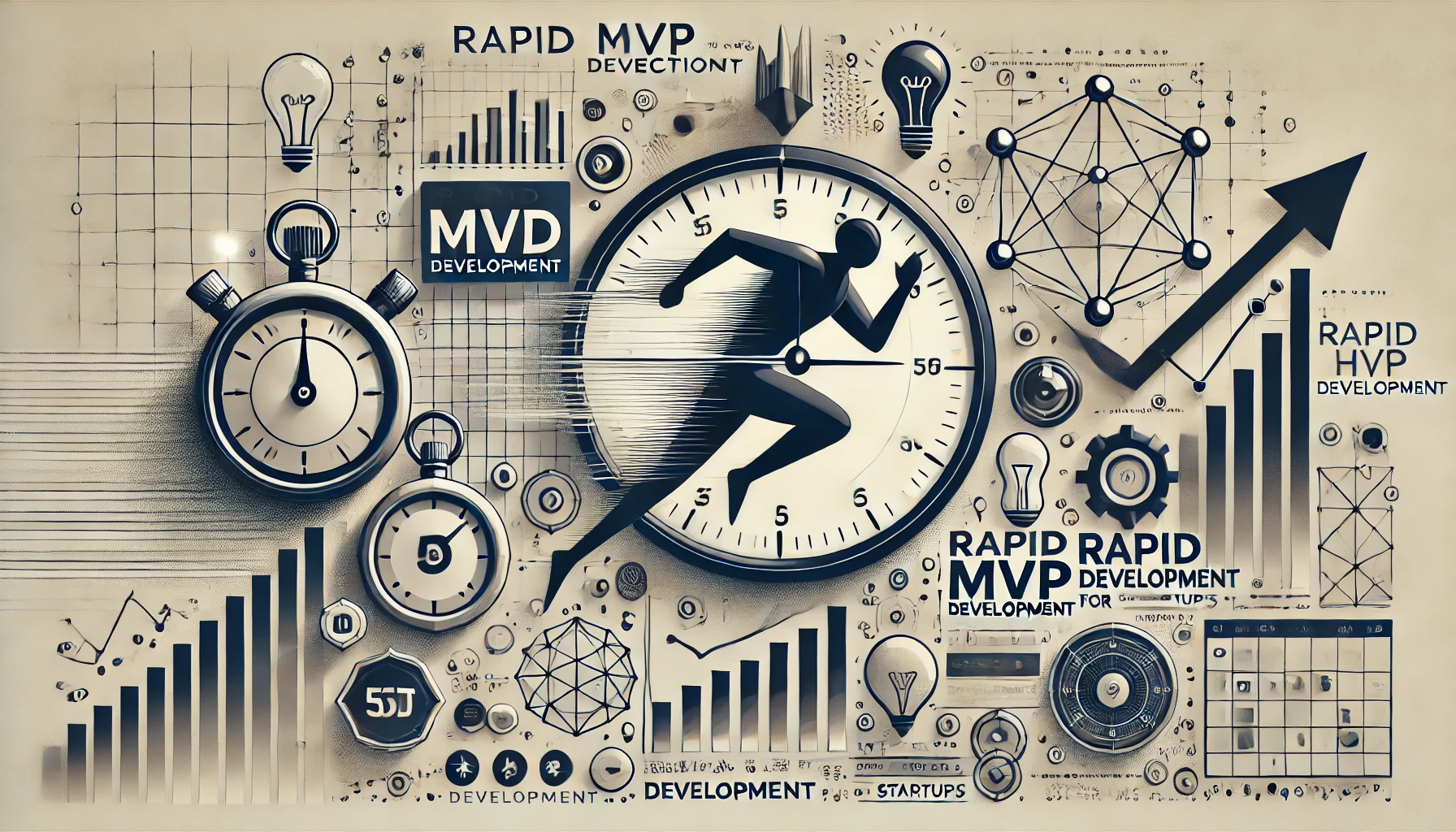Introduction
In today’s fast-paced tech landscape, developing a successful app requires more than just technical expertise—it demands adaptability, speed, and a user-centered approach. This is where Agile development comes in. Agile methodologies allow development teams to work iteratively, respond quickly to user feedback, and deliver a polished product in less time.
In this blog, we’ll explore why Agile development is crucial for modern app development and how it helps ensure faster iterations, flexibility, and ultimately, successful product launches.
What is Agile Development?
Agile development is a flexible, iterative approach to app development that breaks the process into smaller, manageable stages known as sprints. Instead of following a rigid, linear plan like the traditional waterfall model, Agile allows developers to adjust and improve throughout the development cycle, adapting to new requirements, user feedback, or market conditions.
Key Features of Agile Development:
- Sprints: Short, time-boxed iterations that focus on completing specific features or improvements.
- Collaboration: Regular communication between development teams, clients, and stakeholders to ensure alignment.
- Flexibility: The ability to adapt to changing priorities and user feedback.
- Continuous Improvement: Iterative cycles ensure the product is constantly improving based on feedback and testing.
Why Agile Development is Essential for App Success
1. Faster Time-to-Market with Iterative Development
In the competitive world of mobile and web apps, speed is critical. Agile development ensures a quicker time-to-market by breaking the project into smaller sprints. Each sprint focuses on delivering a working version of the app, allowing businesses to launch an MVP (Minimum Viable Product) and get user feedback early.
Example: A startup building a fitness app can launch a basic version with core features within a few weeks, gather real-time feedback from early users, and quickly roll out new updates in subsequent sprints.
Benefits:
- Faster Launch: By focusing on smaller chunks of development, businesses can launch faster and start generating feedback early.
- Early User Feedback: Quick iterations enable teams to improve the app based on real-world user feedback, leading to better product-market fit.
2. Flexibility to Adapt to Changing Requirements
One of the biggest advantages of Agile is its ability to adapt. Whether it’s shifting market demands, new technology trends, or unexpected feedback, Agile development allows teams to pivot and adjust without disrupting the entire project.
Example: Imagine you’re developing an e-commerce app and realize mid-project that users want a wish list feature. With Agile, you can add this feature into the next sprint, instead of waiting for the entire project to finish.
Benefits:
- Adaptability: Agile allows teams to add or adjust features based on feedback without significant delays.
- Risk Mitigation: By continually adjusting the app during development, Agile minimizes the risk of major issues at launch.
3. Continuous Delivery and Incremental Improvements
Instead of waiting for months or years to release a full-featured app, Agile development emphasizes continuous delivery. This means that new features and improvements are rolled out incrementally, keeping users engaged and ensuring the app stays competitive.
Example: A social media app releases new updates every two weeks, rolling out new features, performance enhancements, and bug fixes continuously. Users receive regular updates, which helps keep the app fresh and relevant.
Benefits:
- User Retention: Frequent updates keep users engaged with your app and excited about new features.
- Improved Product Quality: Regular testing and feedback loops ensure that each iteration of the app is better than the last.
4. Enhanced Collaboration and Transparency
Agile development thrives on collaboration. Frequent communication between developers, product managers, and stakeholders ensures that everyone is aligned on project goals. This transparency allows for smoother decision-making and more efficient problem-solving.
Example: A product manager working on a healthcare app collaborates closely with developers during every sprint, ensuring that the app meets both technical and regulatory requirements.
Benefits:
- Improved Communication: Agile promotes constant feedback and discussions, reducing misunderstandings and ensuring alignment.
- Stakeholder Involvement: Regular updates and reviews keep stakeholders informed and involved in the project’s progress.
5. Reducing Development Costs with Agile
Because Agile focuses on incremental development, businesses can optimize costs by prioritizing features and avoiding unnecessary development. This cost-effective approach is especially beneficial for startups that need to carefully manage resources.
Example: A startup building a gamified learning app can prioritize essential features first, avoiding unnecessary expenditure on secondary features until the core functionality is validated.
Benefits:
- Cost Optimization: By developing in sprints, teams can prioritize essential features and delay or remove non-essential features, reducing costs.
- Fewer Delays: Agile’s iterative nature reduces the likelihood of delays since features can be delivered independently.
Conclusion: Agile Development is the Key to Successful App Launches
In today’s fast-paced tech world, Agile development has proven to be the best approach for app success. Its ability to ensure quick iterations, adaptability, and continuous delivery makes it ideal for startups and enterprises alike. Agile not only improves the efficiency of the development process but also enhances the final product, ensuring apps are aligned with user needs and market demands.
At Mobitrics Technologies, we leverage Agile development methodologies to help businesses launch apps faster, adapt to changes, and continuously improve their products. Whether you’re building an MVP or scaling an enterprise-level solution, our Agile approach ensures your app’s success from start to finish.
Looking to develop an app with Agile methodologies? Contact us today to learn how we can help you bring your app to market quickly, efficiently, and with ongoing improvements.



